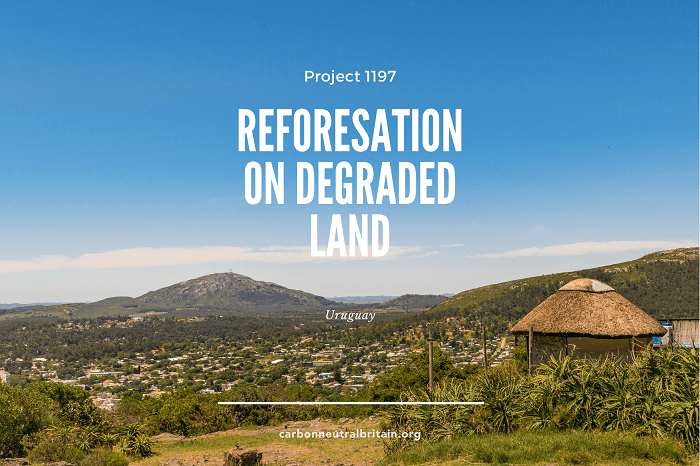Get ahead of the game:-
Starting your search early is like scoring front-row tickets to your favourite band. It gives you the pick of the litter when it comes to student accommodation. So, let’s get cracking and find you a place to call home!
The best student rentals tend to get snatched up fast, so make sure you keep an eye out and set up reminders on sites like Rightmove from October onwards. For an early peek at our properties, follow The Letting Game on Instagram. We post them up to 24 hours before they hit Rightmove. Also, don’t forget to check your university or student union websites for helpful resources.
Money talks
It’s so important to understand what you can afford, take the time to understand your budget. Consider all your expenses, from rent to late-night snacks, and let’s find you something that won’t break the bank.

Neighbourhood vibes
Bristol is like a mixed bag of goodies, with each neighbourhood offering its own unique flavour. From the hustle and bustle of the city centre to the laid-back vibes of Clifton, there’s something for everyone. Let’s explore and find your perfect match!
Getting around
Getting from A to B should be a breeze, right? Bristol’s roads can be a bit of a nightmare and parking in some areas can be difficult to. Whether you prefer biking, bussing, walking or driving, its something to consider when deciding what area is right for you.
Property hunt adventure
House hunting is like a treasure hunt – you never know what gems you’ll find! Let’s schedule some viewings and see what catches your eye. Don’t be shy to ask questions – we’re here to help!

Are you planning to share?
You’ll likely be sharing a home with friends. Determine how many people you’ll be living with and who they will be. Make sure to discuss what each person can afford, what everyone is looking for in a home, and how the bills will be divided. The last thing you want is to have conflicts over money.
It’s also wise to have a friendly conversation about expectations regarding food, cleanliness, and household chores. No one wants to be the nag, but the people you live with are just as important as the property itself.
Does everyone have a guarantor?
If you can’t pay your rent or cover damages exceeding your deposit, your guarantor will need to step in. If you can’t provide a UK-based guarantor, there are options to pay the entire rent upfront, although most people find this difficult to manage.
Are utilities covered?
Some places might cover a few or all of the household bills in the rent. When you’re checking out rentals, it’s good to ask if things like water, internet, or energy are already covered. These days, landlords don’t always include gas and electricity in the rent because of how unpredictable energy prices can be.

Let’s talk paperwork
Before signing on the dotted line, let’s go over the nitty-gritty details. Our goal is to make sure you understand everything in the tenancy agreement. Transparency is key, and we’re here to walk you through it step by step.
Deposit protection
You’ll need to be able to pay your deposit usually 5 weeks’ rent to secure the property. Its important that your deposit is kept safe whilst you are living in your rental. It is a legal requirement that a landlord or letting agent puts your deposit into a Government-approved scheme within 30 days of receipt. Make sure you ask your landlord or agent for details, if that’s us we’ll happily talk you through the details – we’ve got you covered!
Renting your first student property in Bristol should be a blast, and we’re here to make sure it is! Ready to find your dream digs? Drop us a line, and let’s get this party started!
Key Features of the Renters’ Rights Bill:-
With the bill only having its first reading, it still has some way to go before it becomes law. The bill must go through the scrutiny of both the House of Commons and House of Lords (including the committee stages discussing the finer details). We would expect the parliamentary stage to be relatively smooth, given the huge majority held by Labour. We weren’t expecting many new surprises as most parties supported the rental market reform. So, here we are again discussing removing section 21s, fixed-term tenancies and blanket bans, new databases and court reform.
So other than a new name what does the “Renters’ Rights Bill” include? Two of the biggest headliners remain the abolishment of section 21s and fixed-term tenancies: –
Bye-bye to Section 21s
It feels like we’ve been talking about the abolishment of Section 21s forever. The so-called “no-fault” eviction, so it’s no surprise to find it included in the new bill. There will no longer be a 2-stage process (of old vs new tenancies.) Instead, the abolishment of Section 21, will take effect for all tenancies from one set date.
Does this mean a Bristol landlord won’t be able to get their property back? Well yes and no, it depends on the reason. Landlords won’t be able to evict tenants for the sake of it, although our experience suggests this rarely happens anyway. There will be some mandatory and discretionary grounds for a landlord to regain possession of their property. If a tenant wants to remain, then the landlord will have to go through the court process. It is widely felt court reform is needed, there is no indication this will happen before Section 21 is removed.
Mandatory grounds are set to include a landlord or family member wishing to move into the property. As well as the sale of the property (both reasons require 4 months’ notice). It’s worth pointing out that tenants are protected from these grounds for the first 12 months of their new tenancy. We’ll dive deeper into grounds for possession in a future article.
No more fixed-term tenancies
This is a big change for the market. With landlords no longer having the reassurance of a tenant(s) for a minimum term of 6 or 12 months. Effectively this will create an immediate periodic “rolling” tenancy. The key exception here is student HMOs (3 or more sharers). These landlords will still be able to regain possession of their property in preparation for a new student intake. This allows for the cyclical nature of the student market under ‘ground 4a.’ It has left a big question mark over smaller student properties and potential workarounds for those landlords. It’s one we hope to see some change to during the amendment process. We’re members of Propertymark, the leading membership body for property agents. Propertymark are working with the Government to close some of these gaps.
A big concern for some landlords, particularly student landlords, will be the ability for a tenant to give 2 months’ notice at any time. The worry for student landlords will be the increased risk of 2–3-month void period, due to a tenant potentially giving notice for the summer break. For both professional and student landlords, there is still the reassurance that the demand for property typically outstrips the supply. It’s fair to say that a well-maintained property with a good landlord/tenant relationship will have less to worry about. Tenants don’t typically want to move every 2 months if they don’t need to. However, poorly kept properties, with poor relationships may see some tenants looking to upgrade.
What else is in the bill?
As the bill progresses, we will dive deeper into the detail, but here are some key points: –
Rent increases – I object!
Currently, this bill does not propose a rental increase cap. What it does do is allow a tenant to disagree with an increase if they consider it above market conditions. If an agreement cannot be made between landlord and tenant, then it can be referred to a tribunal. The rent increase itself would not become binding until this tribunal has happened. This isn’t actually to dissimilar from now. The main difference is that a tribunal can only enforce the rent increase stated or lower (no longer a higher amount.)
Bidding wars
The published asking rent will be the highest you can accept. This could see a move towards “offers up to” style rental values, potentially causing advertised rental prices to initially bump up.
Blanket bans/discrimination
The Bill looks to make rental properties more accessible to a wider audience. A landlord will not be able to unfairly refuse tenants with children or claiming benefits. Tenants will also have the right to request a pet – so no more blanket pet bans. This will likely be paired with the landlord being able to ask for specific insurance policies or higher deposits for pets.
New rental database
We know, more admin! Landlords will need to be registered on the Private Rented Sector Database. It should help landlords understand their legal obligations, whilst giving tenants a good level of information to make informed decisions. This is going to take some time to set up, and we’re hoping this is something we’ll be able to help our managed landlords with.
Decent Homes Standard
The Decent Home Standard will be applied to the private rental sector. Aiming to increase the standard of rental accommodation and ensure safer homes for tenants.
No more rent in advance
We wanted to pull this one out separately. It’s commonplace for a tenant to offer to pay their rent in advance, where they may not satisfy affordability requirements or for other reasons. Without this financial assurance, it is likely to result in an increased need for guarantors, which can be difficult for international tenants.
So what’s next?
There is a lot to unpack and some of the above could well change, but if you want to read some more information about the bill in all its glory, grab a coffee and click here>
When will it come into force? Well, we can’t be sure yet and elements in the bill around new databases and court reform will likely come in later down the line, however, summer 2025 is the current best guess. The 2nd reading will take place on the 9th of October 2024 – rest assured that we will keep you informed of all the developments.
And, we’ll do our absolute best to help our landlords adapt to the new rental environment. Ultimately there is still a huge demand for rentals in Bristol, and we don’t see this changing anytime soon.

10 Key letting agent features
Finding the perfect letting agent can make all the difference when renting your property. The right agent will not only maximise your rental income but also ensure a hassle-free experience.
In this article we go through the ten key features to consider when choosing the best letting agent:
Choosing the right letting agent is crucial for a smooth and hassle-free rental experience. By prioritising these ten key features, you’ll find a partner who can effectively manage your property, attract reliable tenants, and provide peace of mind.
Ready to find the perfect letting agent? If you’re looking for a respected, value for money and award-winning Bristol letting agent, why not give us a call? If you need some guidance on getting your property ready to rent, or you’d like a FREE no obligation rental valuation then please give us a call on 0117 9898 215 or request a valuation below.
New government priority
Before the former Prime Minister Rishi Sunak called an election, the previous government was looking to deliver the Rental Reform Bill. With the calling of the election the bill was not passed before Parliament was prorogued (effectively closed.) There was a cross-party consensus that rental reform was needed, so its not a surprise to see the new government prioritising it.
Key Proposals from The King’s Speech
So as well as section 21 abolishment, what else do we know about what’s being proposed? Here’s the headlines:
- Goodbye, Section 21: No more “no-fault” evictions. Not sure on what a section 21 notice is, have a look at this article.
- Better Section 8 Grounds: Enhanced grounds for possession will help landlords reclaim
properties in specific situations like rent arrears or antisocial behaviour. - Rent Controls: Measures to control rent increases and empower tenants to challenge
unfair hikes. - End to Rental Bidding Wars: Creating a more balanced market by banning bidding wars
for rental properties. - Anti-Discrimination Measures: No more blanket bans on tenants receiving housing
benefits or those with children. It’s about fair access for all. - Pets in Rentals: Tenants will have the right to request a pet. Landlords must consider
these requests reasonably and can request insurance to cover potential damages. - Decent Homes Standard: Extending this standard from the social sector to the private rented sector means landlords must keep properties free from serious hazards like damp and mould.
- New Ombudsman Service: This will provide a low-cost way to resolve disputes without
going to court, benefiting both landlords and tenants. - Digital Database for Private Rented Sector: This database will provide crucial information for tenants and
landlords, helping everyone make informed decisions and stay compliant. - Stronger Enforcement Powers for Councils: Councils will have enhanced powers to
identify and penalise non-compliant landlords, ensuring a higher standard of rental
properties across the board.
When Can We Expect to See Changes?
Labour talks about implementing changes “immediately,” but in reality, turning a bill into law
takes time. Remember, the Renters Reform Bill was introduced two years ago and still isn’t law.
The new government do appear to be in a hurry, however the roll-out of the bill is likely to be gradual.
Preparing for the Future
At The Letting Game, we strive to do more. These reforms are designed to create a fairer, safer,
and more transparent rental market. As landlords, staying informed and adapting to these
changes is crucial. We’re here to help you navigate this new landscape, ensuring you’re always
compliant and your properties are managed efficiently.
We tell it like it is: these changes are coming, and being prepared is half the battle. Stay tuned
for more updates and don’t hesitate to reach out for advice tailored to your specific needs.

Carbon offsetting projects
This year, we have continued to grow The Letting Game forest and we have now planted over 3,700 trees and counting. We are also thrilled to support two additional projects through Carbon Neutral Britain. With new initiatives in England and Pakistan added, and continuing our support in India and Costa Rica – it’s amazing to see how a Bristol letting agent and its clients can contribute to positive change locally and worldwide.
Blue Carbon Mangrove Restoration in Pakistan
The Blue Carbon Mangrove Restoration project in Pakistan’s Indus River Delta Region is the first of its kind worldwide. Over the next 60 years, it aims to restore 350,000 hectares of mangroves, which could remove about 142 million tonnes of CO2e from the air.
But it’s not just about saving the environment – it’s also about helping the local communities. By creating jobs and improving access to clean water, healthcare, and education, it’s lifting up over 70% of the people who used to live in poverty.
Plus, it’s protecting 11 endangered species by fixing up wetlands and managing resources sustainably. And the money made from selling carbon credits goes right back into the community, making sure the good work keeps going. With strict monitoring and high standards, this project sets a great example for global conservation and sustainable development.

Marston Vale Forest Creation in Bedfordshire
The Marston Vale Forest Creation project is doing big things! They’ve already planted over 2 million trees and plan to plant 5 million more to cover 30% of the Bedford and Milton Keynes area with trees. This project is turning a once industrial landscape, filled with clay pits and landfills, into a lush green ecosystem. Initially, the area had only 3% tree cover, way lower than the national average. But with help from local businesses and the community, they’re turning it around by planting trees strategically and managing woodlands carefully.
These trees are not just for looks – they’re expected to soak up over 500,000 tonnes of carbon during their lifetime, making a big impact on climate change. Plus, trees do a lot more than just clean the air – they help prevent floods, provide renewable resources, and make the area look nicer. Creating this forest isn’t just good for the environment; it’s also boosting the economy, creating jobs, and making people healthier and happier.

Other carbon offsetting projects
We also continue supporting the forest planting projects in South-West Australia and Uruguay.

The Letting Game goes electric!
As Bristol’s greenest letting agency we’ve got our own fleet of electric Mini’s on the city’s roads. Our expert letting team can now carry out viewings, valuations, inspections, as well as other landlord and tenant services with the use of our green fleet; we really don’t play like the others!

‘Additional’ Licensing Scheme to cover all areas of Bristol
A landlord must obtain an ‘additional’ licence if the rental is a small HMO – consisting of 3-4 sharers from 2 or more households. Previously 15 Bristol wards required this licence, but it has now been expanded to all areas that fall within Bristol City Council remit.
‘Selective’ Licensing Schemes introduced to Bishopston and Ashley Down, Cotham and Easton wards
The council can introduce selective licences to certain areas known as ‘wards’. Selective licensing schemes are normally temporary and will often last for 5 years (this means that you will likely only need to apply for the licence once and that’s it). The council can introduce selective licensing in select areas for several reasons including poor housing conditions, anti-social behaviour and high levels of crime.
A selective licence is required for any privately rented property to a family or 1-2 occupants, but not HMOs and is being introduced to rentals in Bishopston and Ashley Down, Cotham and Easton wards.
What is a ‘household’?
Households are talked about a lot in terms of property licensing, so what defines one?:-
- An individual living on their own
- A co-habiting couple
- A family (this includes children, stepchildren, foster children, grandchildren, parents, grandparents, siblings, cousins, aunties, uncles, nephews and nieces)
Bristol City Council have a useful website of licensing terminology here.
How do I know if I’m affected by the new licensing schemes?
Bristol City Council have released a map outlining the city and its wards. Or, if you prefer, they have a ward finder. Input your property’s postcode to either of these to see if your property is covered by Bristol City Council and which ward your property falls under. If your property is managed by The Letting Game and your property is affected by a new licensing scheme then we’ll be in contact to help you.
If your property is under Bristol City Council, click this link to check if you need a licence.
What next?
If your property is managed by us and needs a licence, our Compliance & Policy Officer Alex will be in touch shortly to get the ball rolling.
The applications for the new licensing schemes don’t open until 6th August and you will have until 5th November to apply for your new licence.
If you are applying for the licence yourself, click the ‘Apply’ button on Bristol City Council’s website and follow the steps…
- Fill in details about your property
- Complete the application form & pay the first part of the licence application fee
- Once the application is received by Bristol City Council, they will email you to request the second part of the application fee
- Once paid, the council will arrange an inspection date for your property (this can sometimes take a few months to a year)
- Upon inspection, the council will issue you with a schedule of works to complete at the property (if any) to ensure the property is meeting their licensing standards
- Then… you receive your formal licence! This lasts for 5 years.

This means that any rental reform bill would need to start the process again, so the reform of the rental market is once again up in the air. We would still expect reform of the rental market to be on any new government’s agenda, with the scrapping of section 21’s (the so-called ‘no-fault eviction’ likely to still be front and centre.) Items like the future of fixed term tenancies, court reform, tackling anti-social behaviour, blanket bans, a new ombudsman, digital portals and rent controls will all likely be up for discussion again.
For more information on what was included within the original proposed bill you can read our renters reform post here. Rest assured though, we will keep you informed of any rental market developments as the new political landlord following July’s election becomes clearer.
Bristol licensing reminder
Also, a little reminder that the Bristol City Council approved the new licensing scheme, which will come into effect from the 6th of August. You can read more about that in our previous article here >
Bristol rental market
The Bristol market itself has been largely steady following the seasonal peak of advertised Student properties from October to February. Rightmove data shows that average enquiry volumes across Bristol rentals stayed mostly flat, however, we are now edging towards the summer peak. Average rental values in the Southwest increased year-on-year by just over 9%. We’ll continue to regularly review our landlord’s rent in line with market conditions.

Michael Gove, Secretary of State for Levelling Up, Housing and Communities, hopes the Bill receives “Royal Assent” by summer. We’d expect implementation to start shortly after that. The government is looking to offer a positive message to voters regarding this bill ahead of a general election. It sounds bullish but realistically the implementation of the Renters Reform bill will be staggered.
What is in the Renters Reform Bill and what does it mean for Bristol landlords and their tenants?
The bill has seen significant change as it’s progressed through the Parliamentary process. So, we’re giving Bristol landlords a brief update on the bill and how it could affect them. You can read the latest bill in full on the UK Parliament website. Although, you may need a coffee to get through it all!
No more section 21 – but maybe not for a while
If you’ve heard anything about the Renters Reform, you must have heard about the manifesto headliner – abolishing section 21s. A section 21 notice (described as the “no-fault eviction”) allows landlords to regain possession of their property. Paving the way for ending an assured shorthold tenancy, without requiring a specific reason. Note: they don’t take effect before the end of a fixed-term tenancy.
The impact of this bill is likely to be spread, as the current proposed rollout is staggered. It could be as early as 6 months after Royal Assent that a landlord will not be able to serve a section 21 on new tenancies. However, section 21 will remain a tool for landlords to use for any existing tenancies. The devil will be in the detail, as some tenancies already in place may be defined as new. For the existing tenancies section 21 won’t be abolished until the Lord Chancellor has assessed the possession order process in England. It’s difficult to know how long that assessment process will take…
Section 8 – regaining possession of your Bristol rental
Where next for landlords wishing to regain possession? The likely answer is section 8. If passed there will still be some grounds where the landlord can regain possession. These currently include but are not limited to; selling, the landlord moving in (or a close family member), significant redevelopment, anti-social behaviour, breach of the tenancy agreement and very significant to our Bristol Student landlords they’ll be able to regain possession, for the next student year. This last point was to ensure that a supply of student housing was maintained.
Bye bye to periodic tenancies – but 6 months minimum is a welcome amendment
A big worry for some landlords was the potential removal of fixed-term tenancies, fearing a growth in short-term lets. Those concerned can, to a certain extent, be reassured with an amendment that’s been made. A 12-month tenancy agreement will be a thing of the past; there will be a minimum term of 6 months before a tenant can hand back the property. This means tenants will need to wait 4 months before they can serve 2-months’ notice to their landlord, effectively giving a 6-month minimum tenancy. From that point, landlords will have 2 months to find new tenants. That gives us plenty of time to help them avoid large void periods where possible.
Section 13 must be served if wishing to increase rent
One amendment debated at committee stage was making section 13 notices the only way for a landlord to increase rent. This will need to be served with 2 months’ notice. A rent cap was proposed (by the opposition) and rejected by the committee. Tenants will, however, still be able to challenge a rent increase at tribunal if they believe it to be unreasonable.
New Ombudsman compulsory for landlords
As a trusted local Bristol letting agent, we are already regulated by The Property Ombudsman. Unless there are further changes, it looks like it will be compulsory for landlords to be registered to an approved redress scheme – local councils will be able to take enforcement action if a landlord fails to join, which could include large fines and even banning orders. Tenants will be able to raise a complaint with the ombudsman for things like landlord behaviour, repairs not being completed in a reasonable time and the standard of the property (including health and safety issues.) The ombudsman is likely to have considerable powers including getting landlords to issue an apology, pay compensation and take action to put things right.
Other headlines
- New digital portal to make sure landlords understand their obligations and support tenants in deciding whether to sign a new tenancy agreement.
- Outlawing blanket bans on families with children or those in receipt of benefits.
We will continue to keep you up to date on the Renters Reform and if you are a managed landlord of The Letting Game we’ll help guide you through these changes.
Note: this article was written before the new legislation was published. This means some of the above is likely to change before it’s written into law.

How long have you been in the lettings industry?
“I’ve been working in the lettings industry since December 2019. It’s been quite the journey, but I’ve genuinely enjoyed every step of it. From handling landlord enquiries to ensuring tenant satisfaction, it’s all part of the job. I prioritise building strong relationships with clients, emphasising clear communication and attention to detail. My goal is to consistently provide top-notch service and establish myself as a reliable expert in lettings.”
What does a Head of Administration do?
“My role is to support the team when it is needed. I oversee the Student & Professional Admin team supporting them on the ground, progressing tenancies and assisting with any difficult questions or situations. As a team, we are responsible for progressing all of the tenancies once lets have been agreed, ensuring that referencing is completed, tenancies are compliant and tenants are able to move into their properties on their start dates. These checks are essential to make sure we are moving in good quality tenants to your property. Alongside this, we manage tenant swaps, renewals, managed takeovers and deposit returns – we like to make it as easy as possible for our landlords.”
What’s your favourite thing about working for The Letting Game?
“One thing I really appreciate about TLG is the incredible support system from both the company and my fellow team members. It’s not just about getting the job done; it’s about working together as a team. Everyone’s always willing to lend a hand, plus, we have a lot of fun while we’re at it!”

Stokes Croft
First stop, Stokes Croft – Bristol’s edgy, artsy heart. Think vibrant street art, funky shops, and a nightlife that’s off the charts. This place is all about self-expression, with its colourful murals and indie galleries. Hit up the local bars for some live music or join the party at one of Stokes Croft’s legendary clubs. It’s a wild ride you won’t want to miss.

Bedminster
Time to chill out in Bedminster, where old meets new in the coolest way possible. This neighborhood’s got history, but it’s also buzzing with energy and change. Check out North Street for its eclectic mix of pubs, eateries, and vintage shops – it’s like stepping back in time with a modern twist. And don’t forget Upfest, the street art festival that turns Bedminster into a living canvas every year.

Clifton
Now, let’s switch gears and head over to Clifton – where elegance meets epic views. Picture this: Georgian townhouses lining leafy streets, all overlooking the jaw-dropping Clifton Suspension Bridge. It’s posh, it’s classy, and it’s got a village vibe that’s hard to beat. Wander through Clifton Village for cute shops and top-notch eats, or take a stroll along the Clifton Downs for some serious greenery and killer views of the city.

Redland
Next up, we’ve got Redland – a laid-back oasis with Victorian charm. It’s all about leafy streets, cosy cafes, and parks for days. Take a stroll through St. Andrew’s Park or hit up Gloucester Road (aka “The Glos”) for some serious shopping and snacking. Redland’s got that perfect blend of old-school charm and modern convenience that’ll make you feel right at home.

Easton
Last but not least, let’s head over to Easton – Bristol’s cultural melting pot. This neighbourhood is a feast for the senses, with its diverse community and mouth-watering cuisine. Stapleton Road is where it’s at, with its eclectic mix of shops and food joints serving up flavours from around the globe. Keep an eye out for the street food markets and festivals – they’re a taste of Easton’s vibrant spirit.

Whether you’re into posh vibes, artsy scenes, or multicultural experiences, there’s something here for everyone. So grab your walking shoes and get ready to explore Bristol’s vibrant neighbourhoods – Bristol’s waiting to show you a good time!

 Property Search
Property Search  Report maintenance
Report maintenance 













